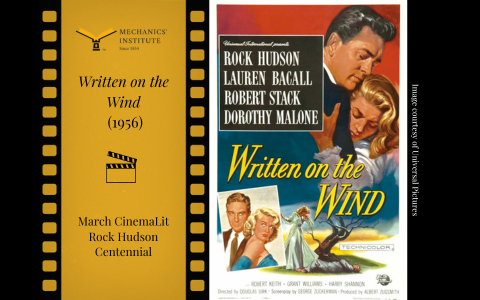
This salon will be held on Zoom. Watch Killer of Sheep on Kanopy and then join us for the discussion!
 February 11 – Killer of Sheep (1978) 81 min directed by Charles Burnett, starring Henry G. Sanders and Kaycee Moore
February 11 – Killer of Sheep (1978) 81 min directed by Charles Burnett, starring Henry G. Sanders and Kaycee Moore
Stan lives in Watts, is married and has two young kids. The stresses of his work in a slaughterhouse are encroaching on his relationships to family and friends. Killer of Sheep eschews conventional narrative story-telling to offer slice of life realism of the Black urban working poor. Burnett avoided any and all cinematic romanticizing of poverty; his film is by turns languid and brutal. Yet his observant camerawork and fantastically eclectic soundtrack – from Dinah Washington to Rachmaninoff to Earth, Wind & Fire – give the film stunning grace and singular beauty. (Image used with permission of Kanopy Inc.)
 CinemaLit is honored to welcome British-born and raised attorney and film critic Omar Moore as guest host for the February 11 discussion of Killer of Sheep. Omar Moore is the founder of the film essay website The Popcorn Reel where his movie reviews and interviews can also be found. He talks about film on the new The Popcorn Reel Podcast and on The Popcorn Reel YouTube Channel. Omar is a member of the San Francisco Bay Area Film Critics' Circle and a former contributing film critic for the PBS television program "Roger Ebert Presents at the Movies." He is the host of The Politicrat, a daily podcast that focuses on contemporary politics and history and has its own merchandise store. He can be read in numerous places including Medium. Omar can also be found tweeting about film, politics and more on Twitter: @thepopcornreel.
CinemaLit is honored to welcome British-born and raised attorney and film critic Omar Moore as guest host for the February 11 discussion of Killer of Sheep. Omar Moore is the founder of the film essay website The Popcorn Reel where his movie reviews and interviews can also be found. He talks about film on the new The Popcorn Reel Podcast and on The Popcorn Reel YouTube Channel. Omar is a member of the San Francisco Bay Area Film Critics' Circle and a former contributing film critic for the PBS television program "Roger Ebert Presents at the Movies." He is the host of The Politicrat, a daily podcast that focuses on contemporary politics and history and has its own merchandise store. He can be read in numerous places including Medium. Omar can also be found tweeting about film, politics and more on Twitter: @thepopcornreel.
CinemaLit / February 2022 – Black Lives on Film
Black History Month at CinemaLit highlights four films reflecting on the African American experience. Two films are documentaries: 2020's Driving While Black: Race, Space and Mobility in America and 2001's One Drop Rule. The feature film Killer of Sheep began as the 1970s master's project of UCLA film student Charles Burnett. It has since gone on to international acclaim as a neorealist masterpiece. Luce from 2019 is a tautly constructed mainstream film taking on tough issues of stereotyping, education, and trauma.
Programming in "Civil Rights, Artistic Diversity, Historical Reckoning: Exploring the Film, Literature, and Lives of Marginalized Communities" has been made possible in part by a major grant from the National Endowment for the Humanities: Democracy demands wisdom.
Any views, findings, conclusions, or recommendations expressed in this program do not necessarily represent those of the National Endowment for the Humanities.

 Matthew Kennedy, CinemaLit’s curator, has written biographies of Marie Dressler, Joan Blondell, and Edmund Goulding. His book Roadshow! The Fall of Film Musicals in the 1960s, was the basis of a film series on Turner Classic Movies.
Matthew Kennedy, CinemaLit’s curator, has written biographies of Marie Dressler, Joan Blondell, and Edmund Goulding. His book Roadshow! The Fall of Film Musicals in the 1960s, was the basis of a film series on Turner Classic Movies.
“I don't have a favorite film,” Matthew says. "I find that my relationships to films, actors, genres, and directors change as I change over the years. Some don't hold up. Some look more profound, as though I've caught up with their artistry. I feel that way about Garbo, Cary Grant, director John Cassavetes, and others."
“Classic films have historical context, something only time can provide,” Matt observes. “They become these great cultural artifacts, so revealing of tastes, attitudes, and assumptions.”
MI Members Free
Public sliding scale donation Free to $10
Register with Eventbrite below.
CinemaLit Films





